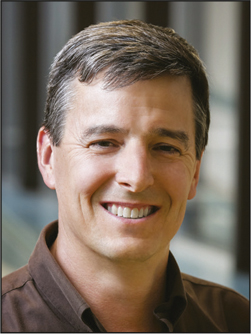John A. Rogers, Northwestern University, has received the 2018 Materials Research Society (MRS) Medal “for pioneering contributions to materials for diverse classes of bio-integrated electronic systems.” Rogers will be recognized during the Awards Ceremony at the 2018 MRS Fall Meeting in Boston.

Rogers is the Louis Simpson and Kimberly Querrey Professor at Northwestern University, with appointments in materials science and engineering, biomedical engineering, neurological surgery, electrical and computer engineering, mechanical engineering, and chemistry. He is also the founding director of the endowed Center on Bio-Integrated Electronics. He received BA and BS degrees in chemistry and in physics from The University of Texas at Austin, and his PhD degree in physical chemistry from the Massachusetts Institute of Technology.
Rogers’s scientific and engineering accomplishments fall mainly into four categories: tissue-integrated electronic/microfluidic systems as wireless platforms for continuous, clinical-quality assessment of physiological health and as interventional/diagnostic tools for treating diseases of the heart and brain; cellular-scale optoelectronics as ultraminiaturized implants for optogenetic studies of neural function and for electrotherapy of neurological disorders; bioresorbable electronics as temporary implants for sensing, drug delivery, and neuromodulation; and three-dimensional electronic networks as interfaces to cells and growing tissues.
In each case, operation has been validated in studies and trials; several are now in commercial use. The materials range from soft elastomers, to shape memory polymers, semiconductor nanomaterials, colorimetric responsive chemistries, and heterogeneous combinations of these with more established materials. Rogers’s research spans materials synthesis and fundamental properties, to integration strategies, device design, and system engineering.
Rogers is the recipient of a MacArthur Fellowship; the Lemelson-MIT Prize; election to the National Academy of Sciences, the National Academy of Engineering, and the American Academy of Arts & Sciences; and election to the College of Fellows of the American Institute for Medical and Biological Engineering. He has published more than 650 papers, is the inventor on more than 100 patents and patent applications, and has co-founded several startup companies.


